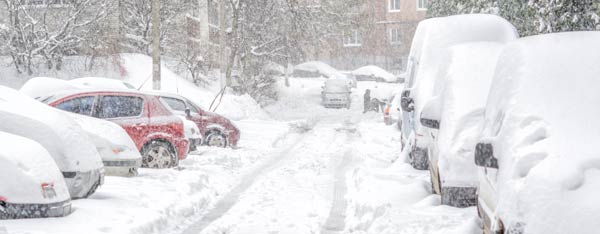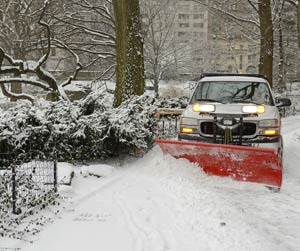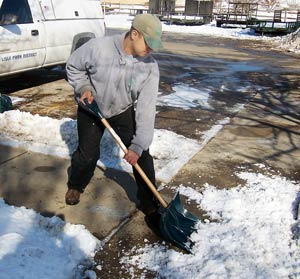
How Is Your Agency Preparing for Winter?
The most demanding of seasons — winter — is almost here. (Okay, it’s roughly two months away, but those weeks will fly by!) Cold temperatures, high winds, snowstorms, ice and snow all present significant safety hazards that require extra attention, extra care — and extra training.
“When there’s so much to get done, it’s tempting to rush through a task or take a short cut, especially when it’s freezing outside,” notes Tim Jaskiewicz, PDRMA Risk Management Consultant. “That’s why it’s so important to train everyone each year to remind them the goal is safety first.”
Here's How Arlington Heights Park District Does It
Arlington Heights Park District recently revamped its winter prep system, according to Jeffrey C. Lindstrom, Superintendent of Parks for the park district. “COVID has been a challenge with some facilities open and others not. It’s become even more important to have good communication with recreation supervisors, so we know what programs are planned during a predicted weather event. It allows our snow-response staff to prioritize buildings based on use.”
The key to ensuring safety, he says, is people and how you work with them. “We try to help our staff succeed. The agency provides them with winter weather gear and trains them on proper preparation and how to recognize potential hazards. We also train them in the safe use of equipment: using the right equipment and tools for the job — not pushing the equipment to perform something it may not be designed for or capable of doing.”
Advance Planning, Training — and Communication
 Advance planning is another important element, Lindstrom adds. “We start planning for next winter when we’re putting the plows away for this season. Supervisors make notes throughout the snow season — what went well and what didn’t, how can we improve next year? Every weather event is different, so one size does not fit all. It’s important to have that large pool of knowledge. When September rolls around, we start reviewing all those ideas and implementing them where possible.” Advance planning is another important element, Lindstrom adds. “We start planning for next winter when we’re putting the plows away for this season. Supervisors make notes throughout the snow season — what went well and what didn’t, how can we improve next year? Every weather event is different, so one size does not fit all. It’s important to have that large pool of knowledge. When September rolls around, we start reviewing all those ideas and implementing them where possible.”
He’s also found that clear and constant communication helps supervisors and staff handle the uncertainty of predicted events. Supervisors have to schedule enough staff to do the work but still keep an eye on the budget. And snow removal staff knows the sites well and cares about doing the best job possible. “Get employees involved in the planning from the beginning,” explains Lindstrom. “See their side of things, but make sure they also understand what you’re trying to do. Everyone needs to have a little buy-in to make the process work — and know that their input counts.”
Snow Day Training
At the park district, the first week of November each year includes Snow Day training. “Recently, instead of having just supervisors review the plans and expectations with staff, we’ve had employees do presentations instead,” he says. “I’m still amazed at how they can draw others into the discussion and share how they perform similar jobs. The give and take is priceless — and everyone learns something.”
If you’re putting together a winter preparedness plan, or looking to update the one your agency uses, here are a few other winter training elements Lindstrom recommends:
- Review, update and train staff on the agency’s snow removal plan
Do it this year. And next year. And the year after that and… Supervisors and staff need to understand the various weather/cleanup scenarios that can occur and how your plan addresses each one.
 Clearing different areas Clearing different areas
Be sure everyone understands who is on which snow crew, how your agency schedules those crews and what area(s) each one is responsible for clearing. Review your policy for arranging substitutes and how supervisors will update crews on start times for a predicted event.
- Equipment safety tips
Stay on top of equipment maintenance. Nothing defeats a crew’s best efforts more than working with equipment that makes the job more difficult and takes longer to get it done. Be sure to provide your staff with equipment training, so they know how to be safe and efficient.
As you plan for the upcoming winter season, check out these PDRMA resources.
|